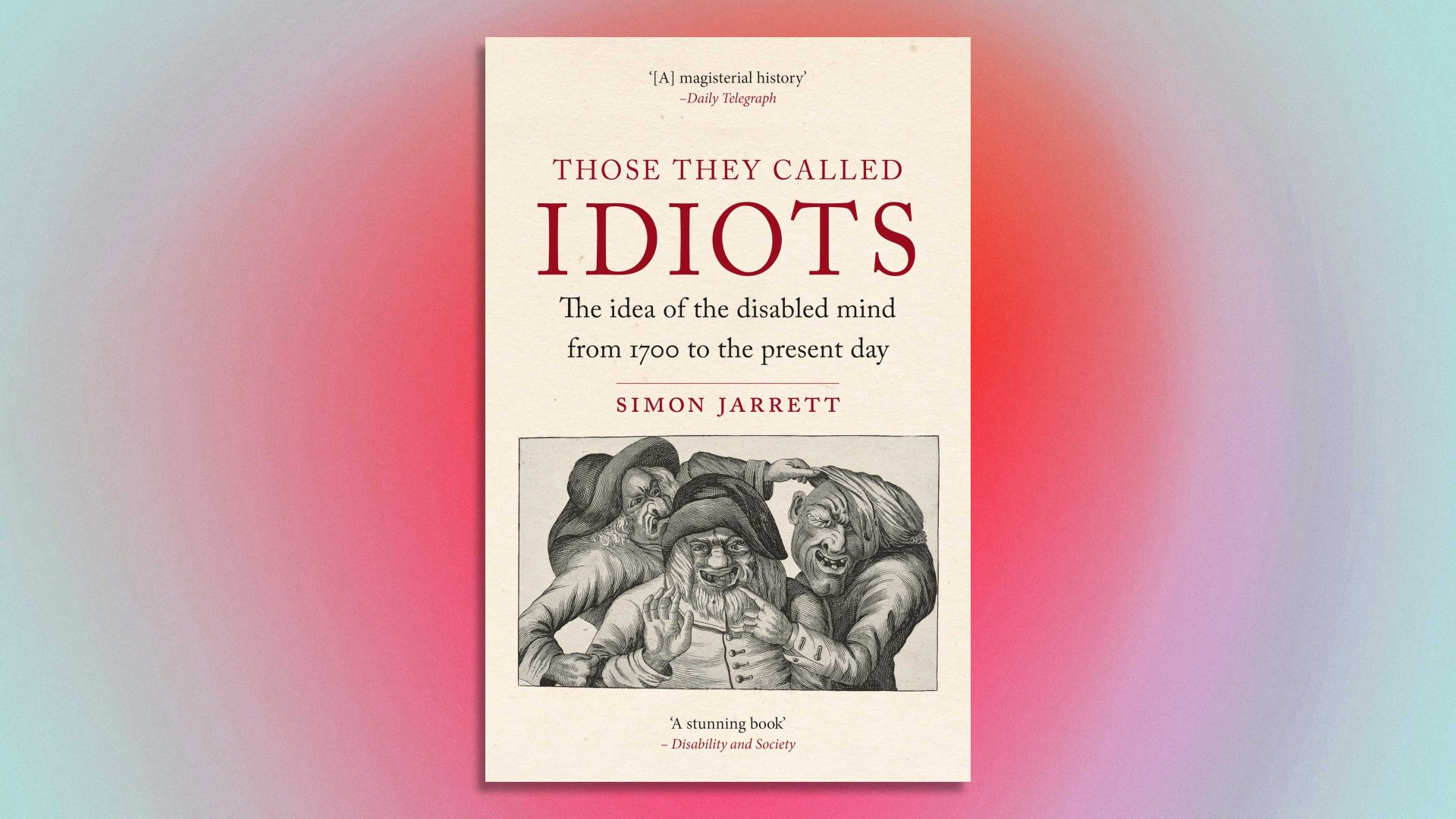“I suppose the book has its origins when I first started working in what were then known as mental asylums,” says Simon Jarrett, whose Those They Called Idiots: The Idea of the Disabled Mind from 1700 to the Present Day, has just come out in paperback. One reviewer of the hardback described it as “offering both an enthralling historical journey and a profoundly moving reflection on humanity”.
Jarrett, who has worked with people with learning disabilities for the last 40 years, has produced a richly illustrated exploration of how, over the past 300 years, society has perceived, and treated, the learning disabled – those who used to be called “idiots”.
“It was in the 1980s, I was a nursing assistant and there was a group of men, many of them had been in there since the 1920s – they’d been admitted as children under the Mental Deficiency Act and they just lived their whole lives there,” he says. “This was where the seeds of the idea for the book were first planted. I was curious as to how we had come to think that this was an appropriate way to treat people with learning difficulties.”
The book is far from a dull recitation of the history of how society has perceived and treated the learning disabled – its canvas is far broader. “I read my way through about 150 18th-century joke books,” he says. “They were very popular at the time and there were lots of jokes about people of low intelligence – but more often than not, the characterisations were not hostile, they were no more than a gentle, and sometimes sympathetic, poking of fun”.
Jarrett also looked at records from 18th-century Old Bailey trials in which witnesses spoke up for defendants who were regarded as “idiots”. One instance he quotes is of a girl who was on trial for stealing ribbons and facing a possible death sentence. Her mistress came to court and told the judge: “She’s a weak silly girl, but if you acquit her, if you don’t hang her, I promise you I’ll take her back into my service and you’ll never see her again.”
This is just one of a number of examples Jarrett gives that illustrate how, at this time, people with learning disabilities were not seen as threatening, more as people needing the support of their community.
Suggested Reading


What the Booker Prize shortlist gets right – and wrong
Paradoxically, it was the impact of the Enlightenment that began the changes for the worse in society’s treatment of “idiots”. “The Enlightenment struggled with people who were not seen as rational,” Jarrett says. “There was a belief that we could build utopian societies from which every citizen would benefit. But the problem was that there was no place for people who were seen as impaired, not able to exercise the faculty of reason – they needed to be kept separate from society.
“From here,” Jarrett adds, “it was a short step to the beliefs of the Eugenics movement, which aimed to improve society by improving the genetic quality of the population, and that meant locking away “idiots” and others deemed to be inferior.”
This belief, coupled with the development of the Poor Law workhouses – institutions where paupers received minimal food and shelter in exchange for daily labour – led to the building of large asylums to house the learning disabled. But there was another factor in play as well. As colonisation began, the colonialists came across people who appeared to them to speak gibberish and, as far as they were concerned, looked like “idiots”.
This fed into the idea that non-white races around the world were less intelligent than “civilised Europeans”, hence subjugation was a rational way of treating them. “Ultimately, it culminated in Germany in the 1930s, where eugenics collided with Nazi ideology and the first people to be killed as part of the Nazi genocide were disabled people – 70,000 people were deliberately gassed to death,” observes Jarrett.
After the second world war, perhaps surprisingly, the impetus to finally end the asylum system came from an unlikely source. Margaret Thatcher thought the large asylums were a waste of public money. “It fitted with her views that the state should do less… and that there were better ways of caring for the learning disabled,” says Jarrett. “End result: Care in the Community”.
He argues that despite several care home scandals, “most people with learning disabilities now live in the community and have much better lives than they had in the past. When I first started working in this field, there was this same routine for the patients – up at 7.00 in the morning, to bed at 7.00 at night, three stodgy meals every day and a little bit of time in a workshop.”
But of course, it is far from perfect. “I remember one man saying to me: ‘I just want a job, any sort of job’ – he wanted to be useful. It’s much the same today, with just 5% of people with learning disabilities in work. Any improvement on that figure would indicate that attitudes to the learning disabled were continuing to change for the better, in a very significant way.”
Those They Called Idiots: The Idea of the Disabled Mind from 1700 to the Present Day is published by Reaktion Books.
Ivor Gaber is a journalist and former professor of political journalism



